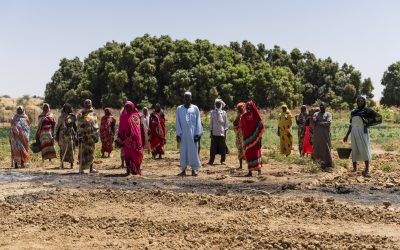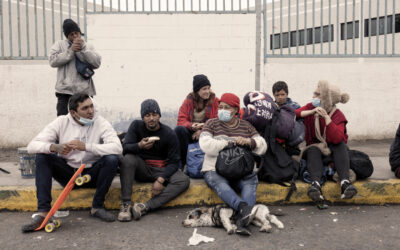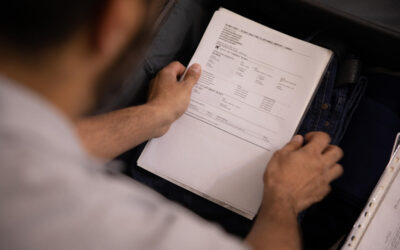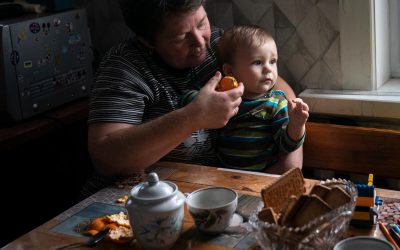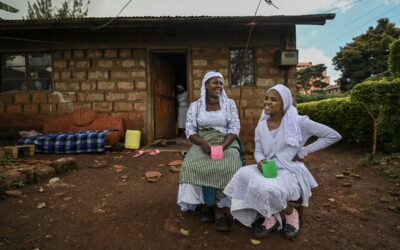News & Events
Past events
The JDC Marketplace on Forced Displacement Research
The Marketplace, developed by the World Bank – UNHCR Joint Data Center on Forced Displacement (JDC) as part of its “Knowledge Agenda,” connects researchers and policymakers by providing a transparent virtual platform for sharing and responding to research needs on forced displacement. It allows stakeholders to post requests, while researchers can propose solutions, with added features like searchable directories and email alerts to enhance collaboration and engagement.
Webinar on statistical inclusion for socioeconomic outcomes
On May 20, 2025, the co-conveners of the Multi-stakeholder Pledges on Statistical Inclusion and Economic Inclusion and Social Protection of Forcibly Displaced and Stateless Persons, with UNHCR’s support, hosted a webinar exploring the intersection between inclusive...
Denmark Launch of World Bank Report “Poverty, Prosperity, and Planet: Pathways Out of the Polycrisis”
Bold solutions and coordinated international action are critical if we are to emerge from today’s polycrisis toward a fairer, safer, and more prosperous world.On February 28, 2025, the World Bank–UNHCR Joint Data Center on Forced Displacement, in collaboration with...
Blogs and Special Features
UNHCR’s new Refugee Data Portal will be launched in 2026
UNHCR’s new Refugee Data Portal was just announced at the Global Refugee Forum Progress Review! This trailer was screened at the Progress Review in Geneva to give delegates a glimpse of the new portal that will be launched in 2026. With JDC support, UNHCR is using the...
Forced Displacement in East Africa
Refugees and migrants in Latin America and the Caribbean benefit local economies, new studies show
Panama City and Washington DC, 26 February 2024 – Forcibly displaced people in Latin America and the Caribbean can contribute significantly to the economies where they live if they have the opportunity, according to two new studies released today by the World Bank...
How data can inform policy to address challenges faced by internally displaced people in the Central African Republic
By Harriet Mugera, Gervais Chamberlin Yama, and Jonathan LainThis article was first published on the Africa can end poverty Blog Cassava producer, Zerkongo, Central African Republic. Credit: Vincent Tremeau / World Bank Decades of division and conflict have left the...
Data can inform policies and programmes that can improve the situation for all
Interview of Maja Lazić, Deputy Head of the JDC, by Elisabeth Haslund about the work and ambitions of the innovative partnership – and on how data and analysis can concretely help improve the response to forced displacement.This article was first published on the...
World Bank-UNHCR Data Sharing Agreement to Improve Assistance to the Forcibly Displaced
UNHCR, the UN Refugee Agency, and the World Bank today signed a new global data sharing framework agreement that will provide both organisations with quicker access to data, improving the timeliness of humanitarian aid and development assistance, and help strengthen protection of forcibly displaced and stateless people.
From Kenya to Kyrgyzstan: how data can help eliminate statelessness
Authored by Maja Lazić , Head of the World Bank-UNHCR Joint Data Center on Forced Displacement Against all odds, Nosizi (right), a stateless Shona living in Kenya, qualified and was accepted to study economics at the University of Nairobi after the institution made an...
People fleeing conflict don’t want aid – they want work
An article by Björn Gillsäter, Head, World Bank-UNHCR Joint Data Center on Forced DisplacementGabriela Davila is a Venezuelan entrepreneur who arrived in Ecuador 5 years ago. She lives in Quito and, in her bakery, prepares colada morada and guaguas de pan, following...
To get a clearer picture of internal displacement, we need better data
Authored by Björn Gillsäter, Head of the World Bank-UNHCR Joint Data Center on Forced Displacement Today, internally displaced persons (IDPs) account for an estimated sixty percent of forcibly displaced persons globally[i]. Coinciding with escalating levels of...




